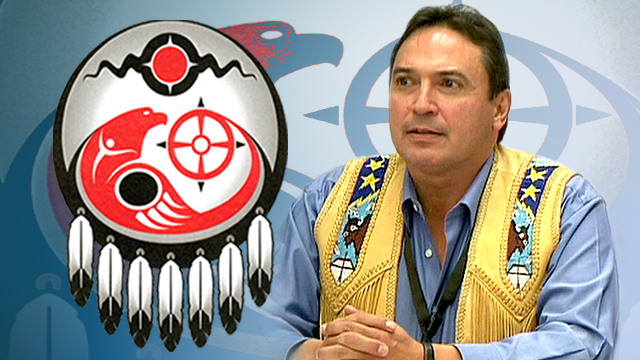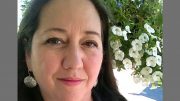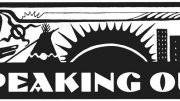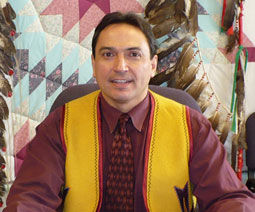by Jake Cardinal
(ANNews) – On May 5, 2020, the Assembly of First Nations (AFN) announced the creation of the AFN COVID-19 National Task Force. The Task Force aims to receive accurate data regarding Indigenous people affected by the virus and provide assessments and recommendations for how Indigenous People within Canada as a whole should proceed going forward.
National Chief Perry Bellegrade said, “The AFN Executive Committee has established the AFN C-19 National Task Force to work in partnership with the AFN Health and Emergency Management Sectors and external experts to provide information, updates, analysis and recommendations as required during this pandemic.
“This is a time of crisis and uncertainty. First Nations must have access to timely and accurate information and we need to over-communicate.
“The AFN C-19 National Task Force will be a valuable asset in this effort. We will continue to push all governments to engage directly with First Nations and to act on our unique needs.”
On May 6, 2020, research in an article done by CBC News showed that a data gap exists in COVID-19 cases within Indigenous communities.
There is some data that exists, but there is far too little.
Indigenous Service Canada (ISC) released a cumulative amount of positive cases of the virus in Indigenous peoples–showing that the numbers of those infected is steadily rising. Broken down by province, ISC reported on May 5, 2020, that there were 161 positive cases of COVID-19 in Indigenous communities within Canada.
The data released fails to provide the amount of recovered cases, the amount and specific names of First Nations infected, nor does it include Indigenous people living off-reserve.
Without proper data, Indigenous People all across Canada will be living in possibly misguided fear. People need to know when their community is safe, when their grocery store is safe, when they’re safe.
For example, the first known death of a Cree person from Quebec was reported on May 5, 2020. The elder passed away in a long-term care facility — due to health care restrictions and privacy, it is unknown if the location was off-reserve.
After CBCIndigenous asked ISC why more data wasn’t available, it was revealed that there has been 2 deaths and 17 hospitalizations of Indigenous People.
Courtney Skye, who is from Six Nations of the Grand River and is a researcher at Yellowhead Institute, claims that community accounts and the word-of-mouth of Indigenous communities is out-pacing ISC’s data – regarding the number of Indigenous people who have died from COVID-19.
In the article by CBC, Courtney Skye said,
“There’s all these ways in which lived realities of First Nations are not captured and represented fairly. Clearly, First Nations have less access to health care, reporting, transparency. It’s frustration because you want to see people treated fairly, and considered equally.”
Spokesperson for Indigenous Service Canada, Rola Tfaili, stated in an email to CBC News: “Provinces and territories don’t require individuals to self-identify when testing at their provincial or territorial test centres. While ISC tracks the sources of information available, all test samples are analyzed by the provincial health system laboratories and the authority for publicly sharing information on the confirmed cases of COVID-19 for individuals living off reserve rests with the provinces and territories, as well as the Public Health Agency of Canada.”
However, it is not all bad news as the province of Manitoba has started collecting data regarding their Indigenous population specifically.
Manitoba Keewatinowi Okimakanak Inc. (MKO) released a statement on May 6, 2020, praising the province’s decision.
“I want to commend the research team at the First Nations Health and Social Secretariat of Manitoba for working diligently to ensure that the province is collecting First Nations data during the pandemic,” Grand Chief Garrison Settee said, “From my understanding, Manitoba is the first province in Canada to collect this information. By providing this information to First Nations leaders and health directors, the province is showing respect for our need to be informed of any confirmed cases of COVID-19 amongst our citizens.”
Manitoba is the first province in Canada to collect Indigenous-specific COVID-19 data.
Regional Chief Kevin Hart, co-chair of the AFN COVID-19 National Task Force, said, “The work of the AFN Task Force is critical. I know from my work on Emergency Management that First Nations will be facing additional challenges on top of this unprecedented pandemic. We can’t only react, we need to be ready. This Task Force will play an important role in that approach.”
The AFN has developed resources and materials for First Nations on the current COVID-19 pandemic. To review or download these resources, visit the AFN COVID-19 Webpage.
Meanwhile, Northern Saskatchewan has seen an outbreak. On May 6, Canada’s chief public health officer stated it is an area of concern as the compromised location is not only remote, but home to First Nations.
Health Officials claims the cause of the outbreak is due to “travel from an oil sands work camp in Northern Alberta.”
The outcome of the Saskatchewan outbreak has been a lockdown for all non-essential travel, two deaths of Elders in La Loche (the Dene village in which the outbreak started) due to COVID-19, and the Clearwater River Dene Nation as well as, the English River First Nation have reported cases.
Despite Saskatchewan Premier Scott Moe’s claim that the province had “flattened the curve,” the La Loche outbreak has driven up the amount of infections. In the North region alone, there are 138 confirmed cases.
The province plans to reopen — just in the places where there hasn’t been a spike in infection.
Premier Moe also set a target for 1,500 COVID-19 tests a day, but government data reveals the province has not made their quota.
“The testing that needs to be done is being done.” Premier Moe stated.
“Our testing is starting to increase again from where it was maybe a week or so ago and I would expect it may increase in the days ahead. In particular, dealing with the one more serious outbreak we have in La Loche and that surrounding area.’







Be the first to comment on "AFN Taskforce formed to streamline Covid-19 information for Indigenous communities"